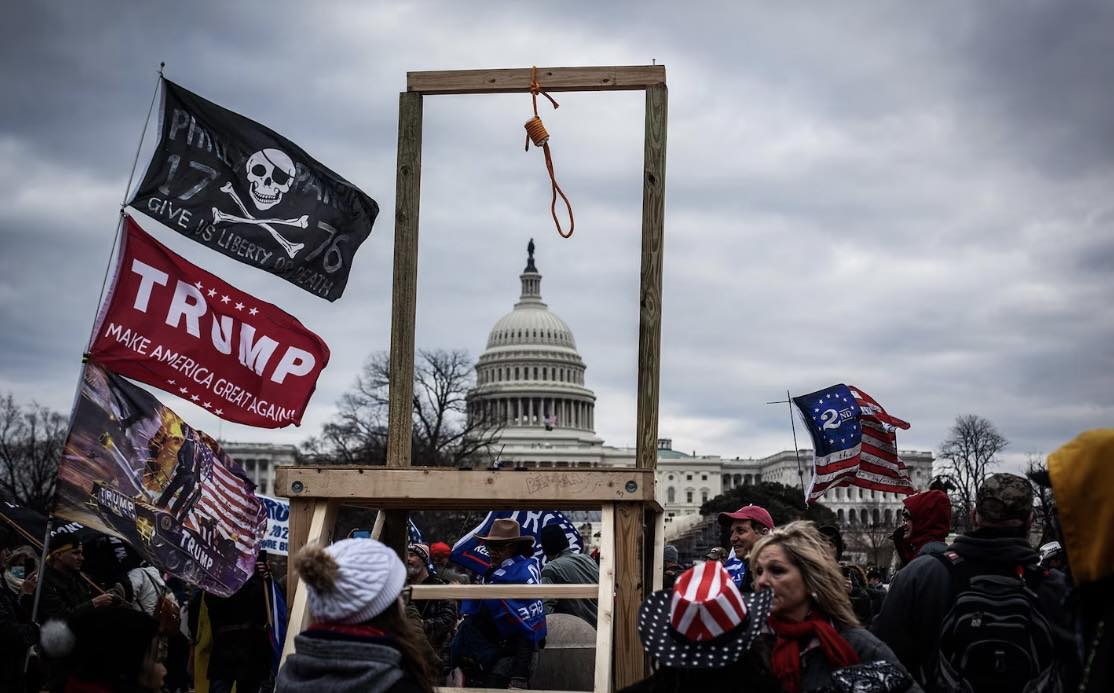
The insurrection on January 6, 2021, stands as one of the darkest days in American history. It was a day when a violent mob stormed the U.S. Capitol, seeking to overturn the results of a free and fair election. This unprecedented attack on democracy did not occur in a vacuum; it was incited by then-President Donald Trump, who spent weeks spreading baseless claims of election fraud and urged his supporters to “fight like hell” to stop the certification of Joe Biden’s victory.
As the nation continues to grapple with the consequences of that day, one thing is clear: accountability, particularly for Trump’s role in the events, is essential. Without it, the foundations of American democracy remain at risk.
Trump’s Role in Inciting the Insurrection
Donald Trump’s role in the events of January 6 is undeniable. In the months leading up to the riot, he repeatedly claimed—without evidence—that the 2020 election had been “stolen.” This disinformation campaign undermined public trust in the electoral process and galvanized his supporters. On the morning of January 6, at a rally near the White House, Trump urged the crowd to march to the Capitol, telling them, “You’ll never take back our country with weakness.”
As rioters stormed the Capitol, chanting threats against lawmakers and the Vice President, Trump failed to act swiftly. For hours, he watched the chaos unfold, offering tepid messages that seemed more sympathetic to the rioters than to the principles of democracy. His infamous tweet calling the rioters “great patriots” further solidified his role in fostering the violence.
The Importance of Holding Trump Accountable
To preserve democracy and the rule of law, it is imperative to hold Trump accountable for his actions. Accountability in this case is not about partisan retribution; it is about upholding the principle that no one—including a former president—is above the law.
If Trump’s role in inciting the insurrection is ignored or minimized, it sets a dangerous precedent that leaders can exploit their power to undermine democracy without consequence. Such a failure would embolden future attempts to disrupt democratic processes and encourage political violence as a legitimate form of protest.
Moreover, Trump’s ongoing rhetoric adds urgency to this issue. He has publicly promised to pardon January 6 rioters if he is re-elected in 2024, a move that signals to his supporters that insurrectionist behavior is not only acceptable but commendable. This undermines the legal consequences already imposed on many rioters and sends a chilling message about the future of American democracy.
Lessons for the Nation
January 6 revealed the fragility of democratic systems, even in a nation with deep democratic traditions. It underscored the dangers of disinformation, the corrosive effects of hyper-partisanship, and the potential for authoritarian impulses to take root.
The path forward requires vigilance, civic education, and a commitment to truth. It also demands accountability—not just for those who stormed the Capitol but for those in positions of power who incited and enabled them.
Remembering January 6
Forgetting January 6 would mean ignoring its profound lessons about the dangers facing democracy. It would mean accepting that political violence and authoritarianism can become normalized in the United States.
We must remember January 6 as a call to action. It is a reminder of the importance of truth, the need for accountability, and the shared responsibility to protect democratic institutions. Holding Trump accountable is not just about addressing the past—it is about safeguarding the future. Only by confronting the full scope of what happened, and ensuring justice is served, can we move forward as a stronger, more resilient democracy.